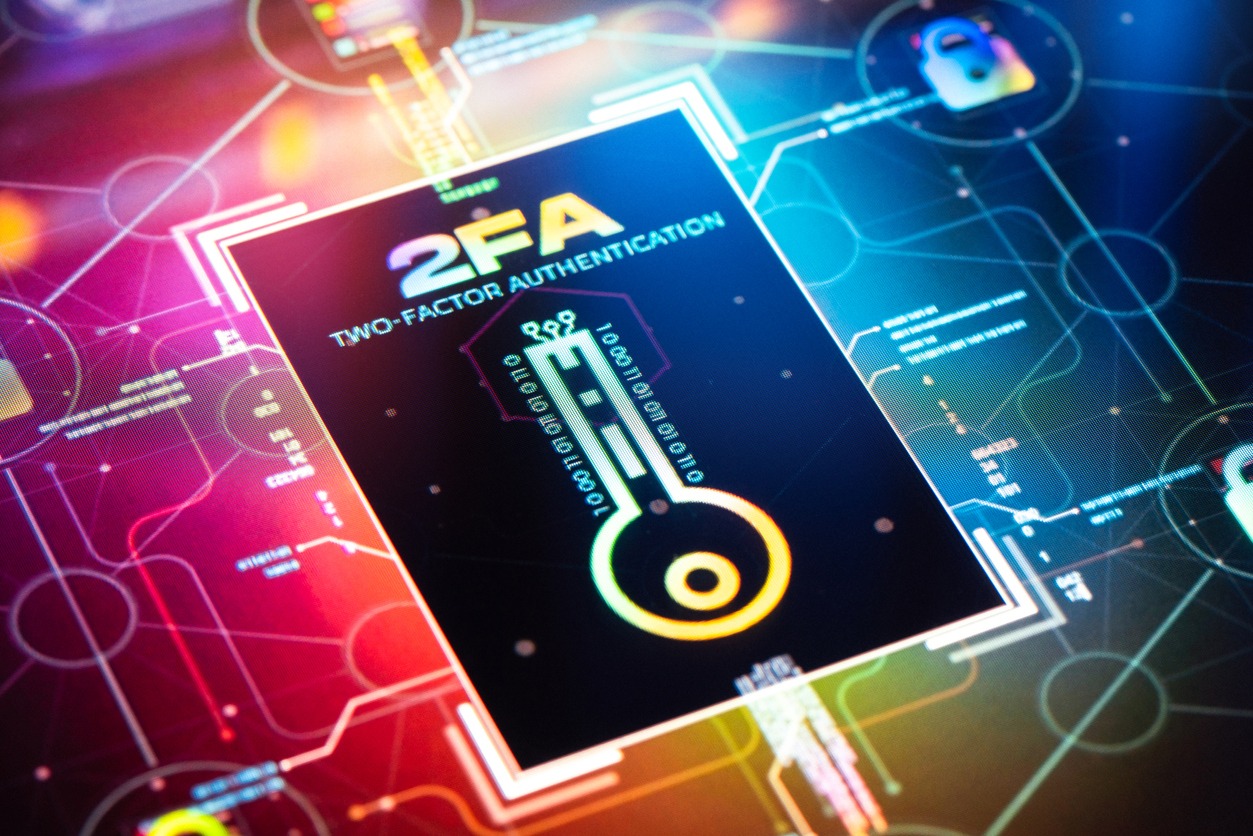
Computer security is a vital aspect of any business that relies on technology to store, process, and transmit sensitive data. Cyberattacks can compromise the confidentiality, integrity, and availability of such data, leading to financial losses, reputational damage, legal liabilities, and operational disruptions. Therefore, businesses need to implement effective security measures to protect their data and systems from unauthorized access.
One of the most common and basic security measures is authentication, which is the process of verifying the identity of a user or device that requests access to a resource or network. Authentication usually involves providing a username and password, which are known as credentials. However, passwords alone are not enough to ensure secure authentication, as they can be easily guessed, stolen, phished, or cracked by hackers.
That’s why businesses should adopt two-factor authentication (2FA), which is an identity and access management security method that requires two forms of identification to access resources and data. 2FA gives businesses the ability to monitor and help safeguard their most vulnerable information and networks1. In this article, we will explain what 2FA is, how it works, what are its benefits, and how to implement it in your business.

Two-factor authentication (2FA) is also known as multi-factor authentication (MFA) or two-step verification. It is a security enhancement that allows you to present two pieces of evidence – your credentials – when logging in to an account2. The two pieces of evidence are:
By requiring two factors of authentication, 2FA makes it harder for hackers to gain access to your account, even if they have your password. For example, if you use 2FA with your email account, you will need to enter your password and then enter a code that is sent to your phone or generated by an app. This way, even if someone steals your password, they will not be able to access your email without your phone or app.
There are different ways to implement 2FA in your business, depending on the type of service or system you want to secure. Some of the most common methods are:
Some services or systems may offer more than one option for 2FA, so you can choose the one that suits you best. However, some methods may be more secure than others. For example, SMS or email may be vulnerable to interception or spoofing by hackers, while authenticator apps or hardware tokens may be more resistant to such attacks. Biometric methods may offer convenience and high security, but they may also raise privacy and accuracy concerns.
Two-factor authentication offers several benefits for businesses that want to enhance their computer security. Some of the main benefits are:
The cost of implementing two-factor authentication (2FA) varies depending on the size of the organization, the technology chosen, and the scale of deployment. Generally, 2FA solutions range from free to several pounds per user annually. Basic methods like SMS-based 2FA might have minimal costs associated with sending text messages, while more advanced options such as hardware tokens or mobile apps can involve higher upfront costs. On average, a basic 2FA solution might cost around £10-£15 per user per month, while more robust solutions could range from £30 to £50 per user per year.
Comparing these costs to potential fines from the Information Commissioner’s Office (ICO) in the UK for data breaches, the financial implications become more significant. The ICO has the authority to impose fines for data protection breaches under the General Data Protection Regulation (GDPR). The fines are divided into two tiers: up to €10 million or 2% of the company’s global annual turnover (whichever is higher) for less severe breaches, and up to €20 million or 4% of the company’s global annual turnover (whichever is higher) for more serious breaches.
Let’s consider a hypothetical scenario: a mid-sized company with a global annual turnover of £10 million suffers a data breach due to a lack of proper security measures, including inadequate authentication protocols. If the ICO deems this breach to be a serious violation of GDPR, the potential fine could be up to £400,000 (4% of £10 million).
Now, if the company had invested in a more robust 2FA solution at an average cost of £20 per user per year for 100 employees, the annual investment would be £2,000. Over a span of five years, the total investment would be £10,000 – an amount significantly lower than the potential ICO fine of £400,000.
In this comparison, it becomes evident that the cost of implementing a secure 2FA solution is a fraction of the potential financial liability resulting from a data breach that could have been prevented with stronger authentication measures. While 2FA does incur ongoing costs, it offers a proactive approach to enhancing data security and reducing the risk of substantial fines, not to mention the reputational damage and loss of customer trust that can accompany data breaches.
Ultimately, organizations need to weigh the costs of implementing 2FA against the potential financial and non-financial consequences of a data breach. Investing in robust security measures, including strong authentication protocols, is a strategic decision that demonstrates a commitment to safeguarding sensitive information and maintaining compliance with data protection regulations.
Click Below to read about Cyber Essentials and why it requires Two Factor Authentication
Advantages of Following the UK Cyber Essentials Rules and Guidelines
System Force IT provides 24/7 IT support and engineering help with all our services. Our IT infrastructure management team are responsible for the backbone of your business. Monitoring and maintaining both physical and virtual services in real-time.